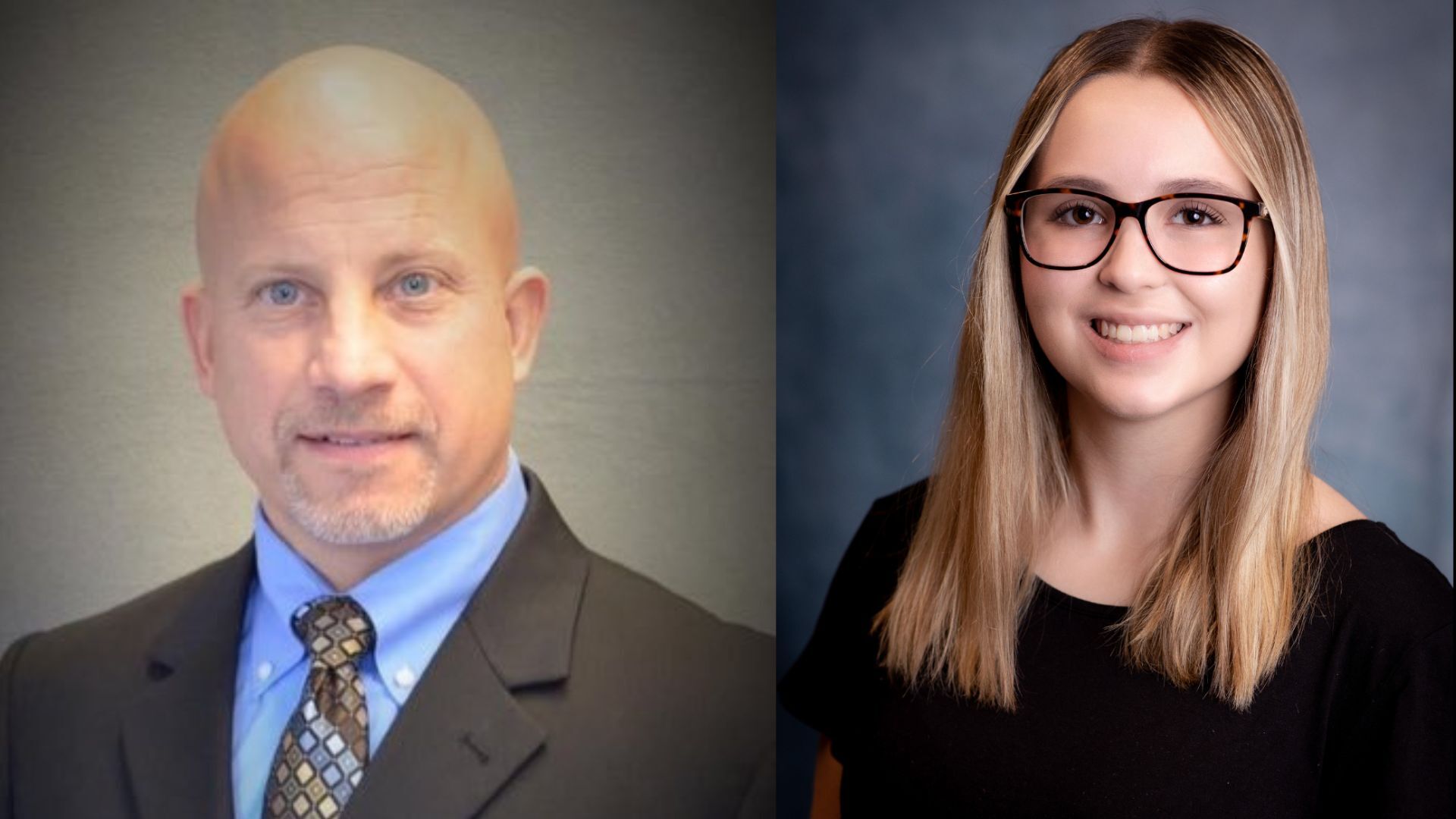Superintendent Steven Archibald, East High School student Elizabeth Fair | Photos Provided
Superintendent Steven Archibald, East High School student Elizabeth Fair | Photos Provided
The choir from East High School performed for the South Lyon School Board of Education at a recent meeting.
The choir sang a few songs as an end-of-year celebration and showcase to the trustees.
“You're so talented and we love you," board president Anthony Abbate told the students, adding that he looked forward to seeing them perform again at commencement.
This performance was followed up by a single student highlight. Matthew Sinopoli-Smith, teacher at South Lyon East High School, introduced Elizabeth Fair as a “Red Tassel Scholar, four-year varsity musician,” and winner of many awards and scholarships.
High school students were given an opportunity in their schedule to create an independent study for a topic that they had an interest in. Fair put together a proposal for a neuroscience independent study, had it approved by the school, and spent a year studying the connection between music and the brain, completing ”a high school level thesis, including an abstract, review of literature, method results and conclusions.”
Fair shared her work with the board, discussing “how music impacts our physical and mental health, how music education classes have contributed to that, and the importance of independent studies.”
She conducted a test with three different parts: a simple task, a complex task, and a logic puzzle, and looked at the results of participants completing those tasks while listening to different types of music.
Fair explained that the results showed that “pink noise” music was best for the complex tasks and heavy metal produced the best results for simple tasks, likely because “heavy metal actually is so complex that it takes up the rest of your attention,” meaning it eliminates other distractions. For a logic puzzle, no music produced the best results because it allowed all areas of the brain to be focused on the task instead of music.
“And it allowed me to explore a topic of interest before actually committing to my major in college,” Fair said. “And this actually helped me to decide that I wanted to go into the field of neuroscience and then almost kind of incorporate music into that as I go through my college experience."
Fair’s research also showed how it can impact physical health in areas like pain management and sleep, and also regulate mental health and memory. The board was thoroughly impressed, especially the portion on the benefits of students receiving music education class.
Superintendent Steven Archibald commended her for such advanced and professional work. Fair is set to attend the University of Cincinnati with plans to study neuroscience.




 Alerts Sign-up
Alerts Sign-up